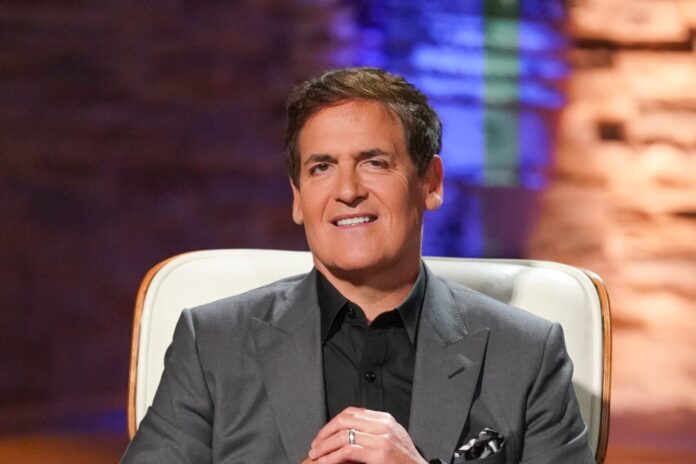Billionaire investor and business owner Mark Cuban is warning us. In a recent Bluesky post, Cuban told Americans to buy everyday items in advance of price increases—telling them the new tariffs implemented by President Trump’s administration will sting consumers even though goods may be USA-made.
His warning was concise and to the point: “It’s not a bad idea to go down to the local Walmart or big box store and purchase a lot of consumables now… even if it’s USA made, they will raise the price and attribute it to tariffs.”
Tariff Shock: A 10% Increase on All Imports
President Trump has unveiled far-reaching tariffs that consist of a 10% flat tax on all foreign imports and “reciprocal tariffs” with half the rate of any import duties a foreign nation charges on U.S. goods. It’s a risky gambit to shift the balance of global trade, but most economists are flashing red lights, foreseeing shockwaves that would destabilize the U.S. economy.
Even domestically produced items aren’t immune to inflation. Most use foreign components or materials, which means their production costs are soon going to increase—and those prices will necessarily be passed on to consumers.
Everyday Items May Soon Hit the Roof
Cuban’s warning is aimed particularly at consumables—items such as soap, toothpaste, paper towels, shampoo, cleaning products, and other household staples. These are the kinds of things that families buy on a regular basis and often in large quantities. Although their individual price may be modest, increases on several items could have a serious impact on monthly budgets.
“Stock up now” isn’t panic buying—it’s foresight. If a family can buy a six-month’s worth of non-perishable items today, they might be avoiding higher prices later.
Also read: Racist Comment Sparks Capitol Drama Over Fox News Clip
Advertisement
Public Concerns on Mark Cuban’s Advice
While stocking essentials looks like a good step to avoid high prices in the future, it raises several concerns too. Most people find his advice as a lifesaver, as stocking things up will save their money. However, some citizens have raised questions about whether this load is good for their economy or not. People have endured the COVID-19 pandemic period, where stocking up didn’t make things better. Thus, they are concerned that the demand for those products will diminish in the market. Furthermore, it will collapse their economy, which is already bearing the pressure of high inflation. They have suggested that others being prepared for a price hike is okay, but using up all the available sources is not.
Some people also criticized him for just mentioning a well-known retail store, like Walmart. According to them, buying groceries and other required items from a local shop can do more good than retail stores. Another hilarious comment was directly asked to Trump about his role in the first two months of his Presidency. It bashed the raw reality to his face about ruining the 10 months of stock growth of American companies during his reign. It shows the uncertainty of Trump’s intention to run the government and the nation with such aggressive measures.
Corporate America’s Price Gouging History Causes Alarm
Mark Cuban is not only afraid of raw expenses—he’s afraid of opportunism. He cited a widespread pattern: firms taking outside economic fluctuations as an excuse to raise prices way higher than they need to. Cuban said that Corporate America does not have a good track record of not gouging consumers whenever the opportunity presents itself .
This implies that even tariff-unscathed products will still increase. Companies are aware that consumers will anticipate hikes and will jack prices up merely because the economic environment permits them to do so without consequence.
Can This Lead to a Wider Economic Slump?
The consequences reach beyond higher supermarket prices. Most economists think these tariffs threaten the entire economy. If businesses begin to charge more and wages lag behind, the outcome is less consumer spending. As consumers cut back, businesses may experience lower sales, reduce operations, or even lay off employees—potentially leading to a recession.
That is why Cuban’s counsel is being heard by so many: he’s urging people to take money precautions before the full impact of these policies filters down.
What Can Consumers Do Right Now?
Mark Cuban’s advice is pragmatic: purchase what you can now when prices are comparatively normal. Consider products you use on a daily basis that don’t have a short shelf life. Paper goods, hygiene products, canned goods, pet food—these are all intelligent buys for anyone wanting to save in the long term. It’s not about stockpiling, but more about taking advantage of prices before inflationary pressure sets in.
Apart from that, you can also take an alternative approach to save money. Instead of spending high costs on the brands severely affected by tariffs, buy them from less affected ones. Additionally, don’t purchase items that have a shorter shelf life, because in the end, they’ll be wasted. If you are thinking of buying a car or heavy equipment, better not to spend money in panic. This is because these industry changes their prices according to the market trend. Therefore, it will be safe to say that the prices may drop or rise in favor of your wallet. Lastly, do not buy anything under the pressure of the present economic conditions of the US. This is because it will cost you a lot of money in the time that must be saved for the future.
Conclusion: A Smart Move in Uncertain Times
Mark Cuban’s caution is more foresight than fear. While tariffs start to redefine prices nationally, consumers who act now will be better situated to ride this out. With inflation possibly pending and corporate activity under the spotlight, a bit of preparation now could translate to huge savings tomorrow.
So, in advance of your next shopping visit, take to heart Cuban’s advice: stock up wisely, and guard your wallet against what’s ahead.








